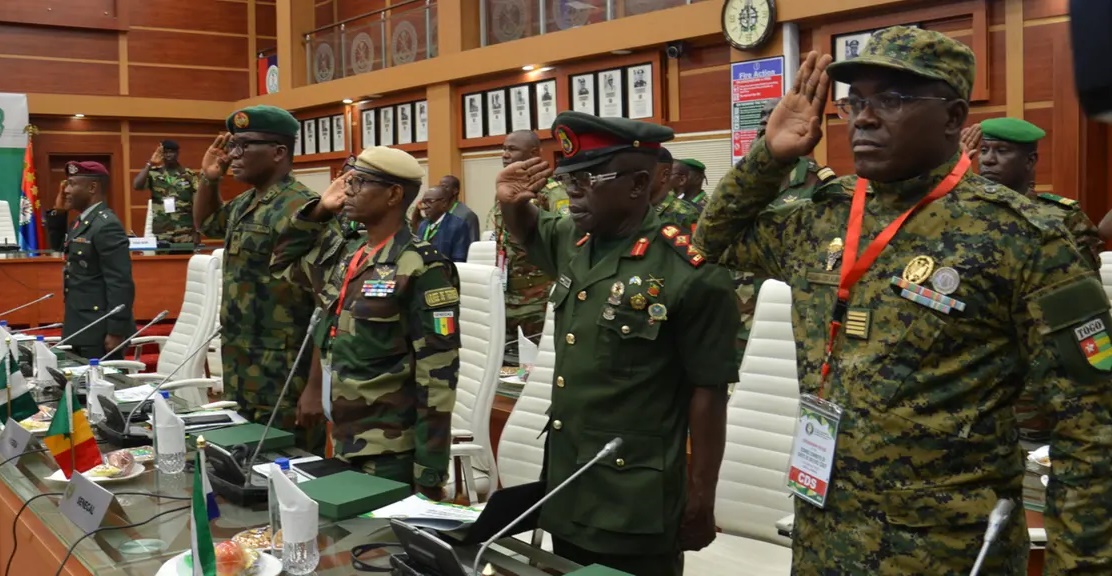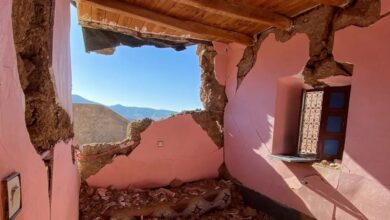Possible military operation in Niger: is ECOWAS serious?
The West African community of states ECOWAS has threatened military action if the putschists in Niger do not reinstate the elected president. Can countries do this - or are they bluffing?

In Abuja, the capital of Niger’s neighboring country Nigeria, the chiefs of staff of the 15 countries of the West African community of states ECOWAS will hold discussions until Friday. Their topic is a possible military intervention in Niger to reverse the military coup.
Karim Yahiaoui is the specialist for West Africa at the French news channel France24. He poses the question that worries many when they look to Niger these days: would parachutists drop over the capital, Niamey? “So far, that’s hard to imagine,” says Yahiaoui. “People want to negotiate, but ECOWAS has its back against the wall. Because if the putschists let the ultimatum pass, the organization’s credibility is at stake.”
ECOWAS wants to demonstrate strength and toughness
ECOWAS consists of 15 countries, eight of which also have a common currency, the CFA franc. Outside the region, the West African Economic Community was previously unknown to many.
That all changed on Sunday, four days after the coup in Niger, when ECOWAS commission chief Omar Touray from Gambia said: “If our demands are not met within a week, we will take all necessary measures to restore the constitutional order in the Republic of Niger. Such action may involve the use of force.”
Military coups like the one in Niger are not uncommon in West Africa. In the last three years alone there have been five: one in Guinea and two each in Mali and Burkina Faso. In none of the cases, however, were there harsh reactions like this time from ECOWAS: far-reaching economic sanctions, border closures, but above all the threat of violence.
The newly elected President of Nigeria, Bola Tinubu, recently took over the presidency of ECOWAS. He took office with a promise: he would not tolerate any more putsches on his doorstep.
ECOWAS is probably relying on Western aid
Anna Schmauder, an expert on security in the Sahel region, sees this as the background to the tough approach: “The putsch, which was now led by the self-proclaimed ruler in Niamey, and the dismissal of the democratically elected President Bazoum are something like a first test ball for the ECOWAS chairman.”
And one with maximum threats: during the deliberations of the chiefs of staff in Nigeria, France and Italy are flying their nationals and international civilians out of Niger. Schmauder says these are signals from Western countries “that further strengthen the credibility of a possible recourse by ECOWAS to military action.” The West African economic community is also counting on the fact that its tough approach will be supported by Western countries, says Schmauder.
Juntas stick together
In other countries, where the military has already staged a coup, the ECOWAS line is provoking resistance. Mali and Burkina Faso jointly declared on Monday evening that military intervention in Niger would be tantamount to a declaration of war on both countries.
Empty threat or serious?
So are the ECOWAS states bluffing or, when in doubt, are they really risking a military conflict? “It is clear that this threat is not without precedent because there was already a regional intervention group in 2017. At that time from The Gambia to depose the former president there after he had refused to relinquish power,” says Schmauder. Ex-President Jammeh, who did not want to make way for his successor, finally withdrew after two days.
In the current conflict, troop movements by Nigerian soldiers towards the border with Niger were reported days ago. Nigerian security sources said that even if Niger, Mali and Burkina Faso combined their troops, they would not match the strength of the Nigerian army. But of course the main goal remains a negotiated solution. This is another reason why ECOWAS sent a delegation to the Nigerien capital Niamey.

